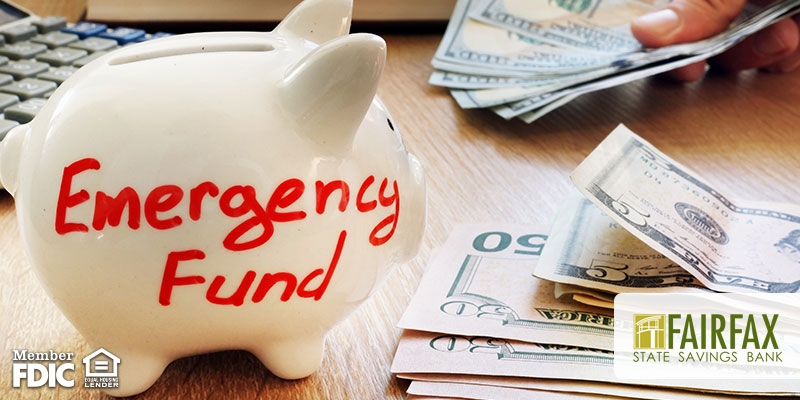Rainy Day Fund: 5 Ways to Save For Unexpected Events
Posted on | Categories: Budgeting, Personal Finances, Savings

You can’t plan on what bad times will come your way, but you can unfortunately count on the fact that there will be a bad day in your future that can impact your bottom line. Make it a little less painful by preparing for the costs ahead of time! Here are some creative ways you can start saving today for unexpected events.
1. Know What The Fund Is For
Don’t start a big life adjustment if you don’t really understand the purpose behind it. This is true of just about every big change! Often, people will start a savings account and keep it as a lump sum to use towards anything unexpected that comes their way, whether it be a flat tire or extra meals out on vacation. A Rainy Day Fund is typically just for bad days that require money towards new tires or fixing a small plumbing problem. It’s for smaller mishaps but not full-blown financial emergencies.
2. Separate Your Savings
Once you have an understanding of what the funds are for, you should separate your savings accounts. By having a different account for emergencies, vacations, rainy days, etc., you will be better able to track and spend your savings. You may even be motivated to save more. If you see one of your savings areas lacking, you can concentrate more money into that account at your next paycheck.
3. Hold Tight to Extra Income
While it may seem obvious, it’s definitely not easy. When you get extra income, whether it be a pay raise or even money given as a gift for a birthday or anniversary, you can put that money directly into your savings account. Your daily living isn’t required to change for this simple tip!
4. Start Saying No to Whimsy
A Rainy Day Fund isn’t a fund for you to splurge on unneeded items when you’ve had a bad day. It’s a fund to keep your budget in check so you can ride out the unexpected waves of financial trouble. Before you go shopping, make a list of what you need. Buy no more than what is on that list and shop purposefully. If you love the occasional “splurge,” account for that in your budget. For example, you can know that you have $30 to spend however you please whenever you please every two weeks.
5. Set a Goal
It’s hard to know where to start if you don’t have a goal. For many, a Rainy Day Fund is the first step in learning how to build a larger emergency savings. It sets the foundation for a more detrimental financial emergency like losing a job. Start small but be specific with what you hope this account to look like three, six and twelve months from now. Knowing where you are going with this will be great motivation to get started!
While saving for unexpected events, we offer a variety of accounts to keep your money safe. Learn what works best for you at Fairfax State Savings Bank.
